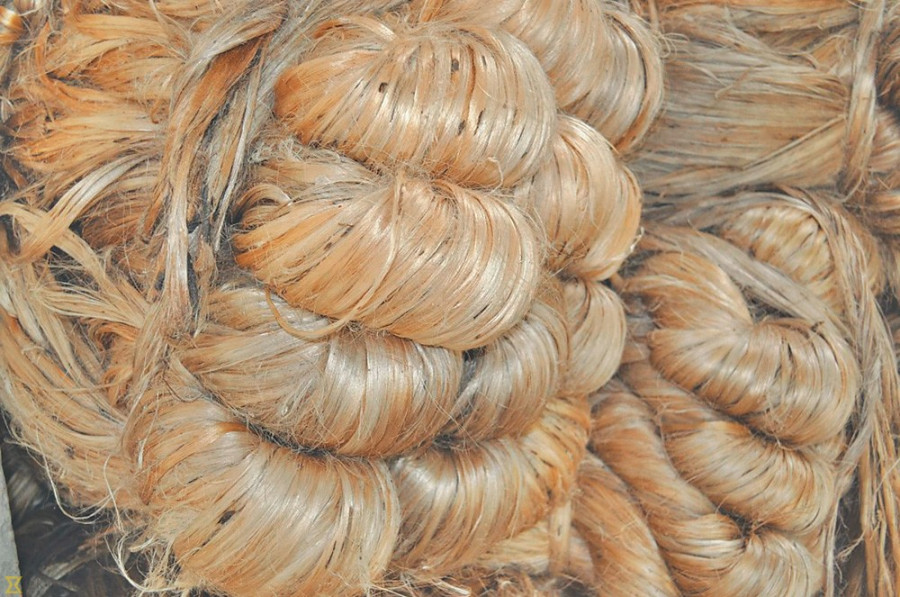Money
Countervailing duty on Nepali jute scrapped
The Indian government has scrapped countervailing duty (CVD) on Nepali jute products. Following repeated requests by the Nepal government, the southern neighbour agreed on April 20 to waive CVD on Nepali jute exports.
The Indian government has scrapped countervailing duty (CVD) on Nepali jute products. Following repeated requests by the Nepal government, the southern neighbour agreed on April 20 to waive CVD on Nepali jute exports.
“India has considered the request of Nepal favourably and issued a notification to customs to remove the CVD,” the Indian Embassy said in a press release on Tuesday.
“This notification exempts levy of additional customs duty on jute products which means that henceforth, no CVD shall be imposed on Nepali jute products when imported into India.”
Ambassador of Nepal to India Deep Kumar Upadhyay had requested that the duty be cancelled when he called on Indian Textiles Minister Smriti Zubin Irani in New Delhi recently.
Upadhyay had also asked Irani to facilitate smooth exports of Nepali jute products to India as usual. During the meeting, Irani had assured Upadhyay that positive consideration would be given to the issue.
The abolition of CVD is likely to substantially enhance jute exports from Nepal to India and give a new lease of life to the country’s ailing jute industry besides securing the jobs of thousands of jute workers.
India has been imposing anti-dumping duty ranging from $6.30 to $351.72 per tonne on jute and jute products imported from Nepal since January 6. The import-restrictive levy was imposed on jute yarn and twine, Hessian fabric and jute sacking bags in ‘all forms and specifications’. The duty was imposed after the Directorate General of Anti-Dumping and Allied Duties of India launched an investigation into imports of jute products in 2015 following complaints from domestic manufacturers.
In its final order issued in October last year, the authority acknowledged that there was dumping of the goods, and that imports were ‘undercutting and suppressing the prices of the domestic industry’. The probe report said, “The performance of the domestic industry has deteriorated in terms of profitability, return on investments and cash flow because of dumped products.”
Nepali jute producers import 70 percent of their raw materials from India and ship their finished products to the southern neighbour. Nearly 95 percent of Nepali jute is exported to India.
Those engaged in the production of jute goods in Nepal had said that the Indian government’s move would push the feeble Nepali jute industry to the verge of collapse.
Of the 12 jute factories in the country, only four are currently in operation—Arihant, Raghupati, Baba and Swastik. These mills employ 12,000 workers.
Three decades ago, the country used to be a major exporter of jute to Europe, and the golden fibre was one of the major sources of foreign exchange. At that time, Nepal used to produce 150,000 tonnes of jute annually. Production has now plunged to 17,000 tonnes.




 9.89°C Kathmandu
9.89°C Kathmandu














